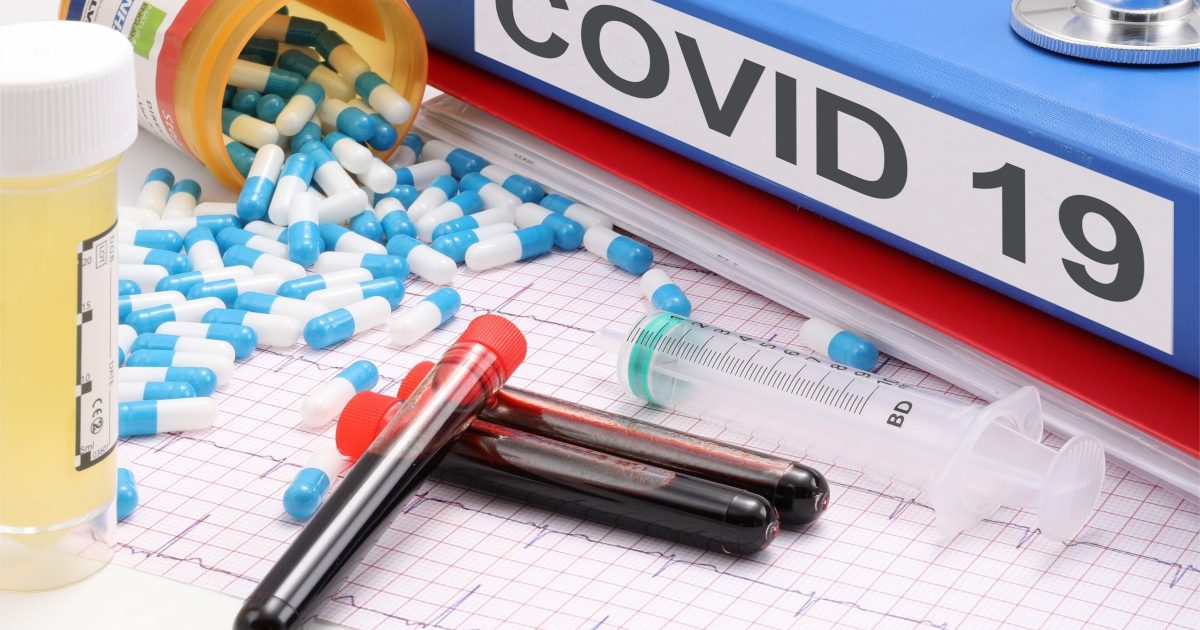It was always pseudo-science for some medical overlords overtly stating natural immunity from a previous COVID-19 infection only lasted a few weeks or months.
We were still in the early stages of learning more about the virus and had no way of knowing until long-term studies were conducted.
After 18 months into COVID-19 hysteria, it’s becoming more clear how long natural immunity lasts for the millions of people who’ve already had and recovered from the virus.
And the reports indicate that natural immunity may last a lifetime.
So, if you’ve already recovered from COVID-19, there’s no logical reason to inject an experimental vaccine into your body.
That’s NOT science!
Here’s the latest:
STUDY: COVID-19 Antibodies May Last a Lifetimehttps://t.co/TqYvblYK0R
— Jack Poso 🇺🇸 (@JackPosobiec) June 1, 2021
People who recover from mild COVID-19 have bone-marrow cells that can churn out antibodies for decades, though viral variants could dampen some of the protection they offer. https://t.co/wi9pGMksqV
— nature (@Nature) May 27, 2021
COVID-19 antibodies from mild cases could last a lifetime, researcher say:https://t.co/ikBKYqfQHt#COVID19 #antibodies @WUSTL @WUSTLmed @WUSTLnews
— Futurity News (@FuturityNews) May 28, 2021
Good news: Long-lived antibody-producing B cells in the bone marrow of people who have recovered from #COVID19 provides evidence that immunity triggered infection (& likely by #vaccines also) will be extraordinarily long-lasting.
Via @nature #immunology https://t.co/x8I3UtRLzI
— Daniel Kraft, MD (@daniel_kraft) May 30, 2021
In a recent study, it was found that those who had mild cases of #coronavirus could have antibody protection that could last a lifetime.https://t.co/gp5YPcbD76
— Quint Fit (@QuintFit) May 29, 2021
Nature reported:
Many people who have been infected with SARS-CoV-2 will probably make antibodies against the virus for most of their lives. So suggest researchers who have identified long-lived antibody-producing cells in the bone marrow of people who have recovered from COVID-191.
The study provides evidence that immunity triggered by SARS-CoV-2 infection will be extraordinarily long-lasting. Adding to the good news, “the implications are that vaccines will have the same durable effect”, says Menno van Zelm, an immunologist at Monash University in Melbourne, Australia.
Antibodies — proteins that can recognize and help to inactivate viral particles — are a key immune defence. After a new infection, short-lived cells called plasmablasts are an early source of antibodies.
But these cells recede soon after a virus is cleared from the body, and other, longer-lasting cells make antibodies: memory B cells patrol the blood for reinfection, while bone marrow plasma cells (BMPCs) hide away in bones, trickling out antibodies for decades.
“A plasma cell is our life history, in terms of the pathogens we’ve been exposed to,” says Ali Ellebedy, a B-cell immunologist at Washington University in St. Louis, Missouri, who led the study, published in Nature on 24 May.
Researchers presumed that SARS-CoV-2 infection would trigger the development of BMPCs — nearly all viral infections do — but there have been signs that severe COVID-19 might disrupt the cells’ formation2. Some early COVID-19 immunity studies also stoked worries, when they found that antibody levels plunged not long after recovery3.
Ellebedy’s team tracked antibody production in 77 people who had recovered from mostly mild cases of COVID-19. As expected, SARS-CoV-2 antibodies plummeted in the four months after infection. But this decline slowed, and up to 11 months after infection, the researchers could still detect antibodies that recognized the SARS-CoV-2 spike protein.
To identify the source of the antibodies, Ellebedy’s team collected memory B cells and bone marrow from a subset of participants. Seven months after developing symptoms, most of these participants still had memory B cells that recognized SARS-CoV-2. In 15 of the 18 bone-marrow samples, the scientists found ultra-low but detectable populations of BMPCs whose formation had been triggered by the individuals’ coronavirus infections 7–8 months before. Levels of these cells were stable in all five people who gave another bone-marrow sample several months later.
“This is a very important observation,” given claims of dwindling SARS-CoV-2 antibodies, says Rafi Ahmed, an immunologist at Emory University in Atlanta, Georgia, whose team co-discovered the cells in the late 1990s. What’s not clear is what antibody levels will look like in the long term and whether they offer any protection, Ahmed adds. “We’re early in the game. We’re not looking at five years, ten years after infection.”



Join the conversation!
Please share your thoughts about this article below. We value your opinions, and would love to see you add to the discussion!